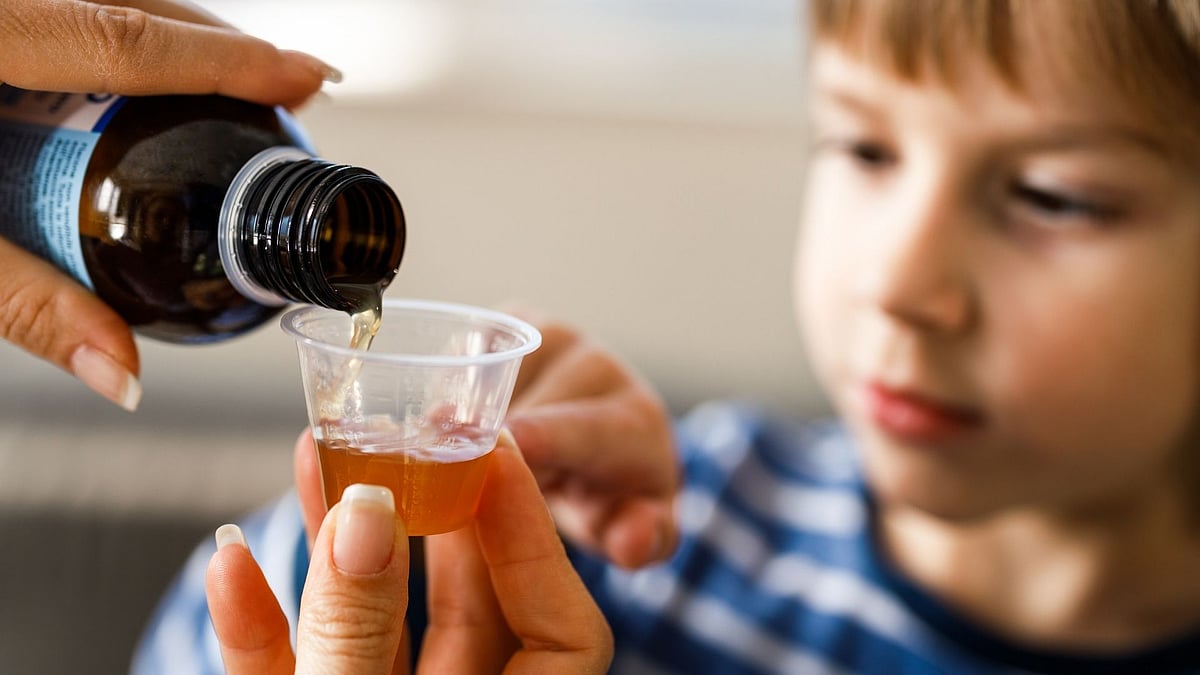'Cough Syrup Is Not Killing Children, Corruption Is': Educator Exposes The Dark Truth Behind DEG Poisoning
Some unethical manufacturers substitute Diethylene Glycol (DEG) in place of PG. The two look, smell, and taste similar, but that’s where the similarities end

An Instagram educator recently broke down a chilling reality, cough syrups can, and have, killed people, especially children. Not because of the medicine itself, but because of a toxic mix of corruption, negligence, and greed in the pharmaceutical chain.
The chemistry behind it: DEG vs PG
Most cough syrups use Propylene Glycol (PG), a safe, pharmaceutical-grade solvent that gives syrups their smooth texture and mild sweetness. PG is approved for medical use worldwide and poses no harm when used properly.
However, some unethical manufacturers substitute Diethylene Glycol (DEG) in place of PG. The two look, smell, and taste similar, but that’s where the similarities end. DEG is an industrial chemical used in brake fluid, paint, and antifreeze, and is extremely toxic to humans. Even small quantities can cause acute kidney failure and death, particularly in children.
How does DEG slip into medicines?
On paper, India has strict drug regulations. Every batch of medicine is supposed to be tested for purity and safety before reaching the market. But reality tells a different story.
-Export batches undergo testing only when importing nations demand certification.
-Domestic batches, however, often escape scrutiny because state-level testing labs are poorly equipped or simply negligent.
-Even worse, the same factories producing export-grade medicines also make domestic batches, but without the same quality checks.
This lack of uniform enforcement allows toxic batches to reach pharmacies and clinics undetected.
When toxic batches stay on shelves
India lacks a centralised drug recall system. So even when contamination is detected, those medicines often stay on shelves, sometimes even after deaths are reported. Admitting contamination means acknowledging regulatory failures, and that’s something officials and manufacturers often try to avoid.
The tragic outcome? Contaminated Indian syrups have been linked to child deaths in The Gambia, Uzbekistan, and Cameroon, drawing global outrage.
History offers a harsh reminder. In 1937, over 100 people in the U.S. died after consuming cough syrup tainted with DEG. That tragedy led to the creation of the U.S. Food, Drug, and Cosmetic Act, revolutionising pharmaceutical safety. Since then, not a single DEG-related death has been recorded in the U.S.
Corruption isn’t just eroding India’s roads or public offices, it’s poisoning its medicine supply. Until transparency and accountability replace greed and shortcuts, Indian children and families will remain vulnerable to poisons disguised as medicine.
(The explainer is based on @simplifiedsd's content.)
RECENT STORIES
-
-
-
-
-